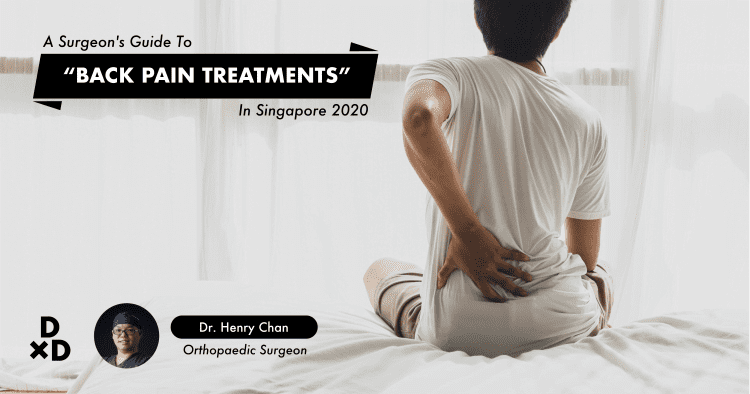Many people around the world deal with scars and scarring on different levels. Patients who seek treatment for their aesthetic irregularities often also need to find solutions for the emotional or mental consequences of being dissatisfied with their appearance. Problems with acne are common examples of this and patients may feel despair when treatments do not work out.
Dr Chin Yee Choong, the medical director of Dermclear Aesthetic & Laser Clinic, has recently responded to a Human post regarding the association of acne scars with body dysmorphic disorder. Here's what he has to share.
What is body dysmorphic disorder?

Body dysmorphic disorder (BDD) is described as a disorder that mainly involves a patient's obsessive idea that some aspect of his or her own body or appearance is severely flawed in some way. In many instances, BDD leads to exceptional measures being warranted by patients for either hiding or fixing the dysmorphic part of their bodies. BDD is often caused by several factors such as the environment, abnormalities in brain structures and genes.
The common symptoms of BDD faced by patients are:
- worrying a lot about a specific area of your body
- spending a lot of time comparing appearance with others
- looking into mirrors a lot or avoiding mirrors altogether
- spending a lot of time to conceal flaws
- picking at your skin to make it seem perfect [1]
Patients with body dysmorphic disorder and acne are in difficult positions

Depending on the severity of the patient's disorder, acne marks can be extremely troubling for those with BDD. They may try to pick at their skin and cause further damage and scarring to affected areas. [2]
A doctor will have to evaluate the patient’s symptoms

Dr Chin suggests that patients should try to get a proper assessment from a doctor as soon as possible. An evaluation can help identify the severity of the acne and allow the patient to start on treatments that could can control the inflammation of acne as this can further trigger the symptoms of BDD. [3]
Sometimes, acne management solutions can help body dysmorphic disorder

If the body dysmorphic disorder is not too severe, managing the inflammation of acne and keeping it under control helps to curb the urge for patients to start picking on their skin. [4]
Sometimes, acne management is not enough

However, in severe cases of body dysmorphic disorder, the improvement of acne may not be enough to keep patients from wanting to pick their skin. If this is the case, patients are advised to see a psychiatrist as a primary doctor. Psychiatrists can help co-manage body dysmorphic disorder tendencies. [5]
A combination of acne scars and body dysmorphic disorder can spell trouble and patients should recognise that professional medical help may be in order. This can help facilitate recovery during this difficult period in their lives.
Dr Chin Yee Choong is a medical director at Dermclear Aesthetic & Laser Clinic. His area of practice is in the area of beauty aesthetics fields of dermatology and aesthetic medicine. He has had more than 12 years of experience in thread lifts and fillers and regularly travels to keep himself well-informed of the newest treatments available.
Would you like to ask any related health questions? You can Ask A Doctor right away, or view the complete list of Human Sessions.













